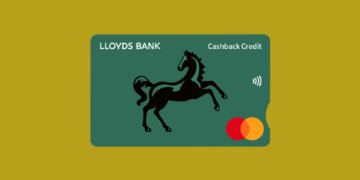
How to Apply for the Monzo Flex Credit Card Step-by-Step Guide
The Monzo Flex Credit Card offers flexible payment options over three, six, or twelve months, an interest-free period for large purchases, seamless app integration for easy financial management, and the chance to boost your credit score. It's designed to align with your budget while enhancing cash flow and financial insight.

How to Apply for Lloyds Bank World Elite Credit Card Step-by-Step Guide
The Lloyds Bank World Elite Credit Card offers exclusive travel benefits like complimentary lounge access and comprehensive travel insurance. Enjoy worldwide acceptance with reduced foreign fees, plus tailored financial management tools for better expense control, making it a valuable companion for frequent travelers.

How to Apply for Lloyds Bank Cashback Credit Card Easy Steps
Unlock rewards with the Lloyds Bank Cashback Credit Card: earn cashback on everyday purchases, enjoy competitive interest rates, and benefit from enhanced security features. Gain access to exclusive offers and discounts, and shop with confidence using this versatile financial tool tailored for smart spending.

How to Easily Apply for the HSBC Rewards Credit Card Online
The HSBC Rewards Credit Card transforms everyday spending into rewards with points redeemable for travel and cashback. Enjoy travel perks, insurance, exclusive offers, and flexible payments. Enhance your lifestyle with access to special events and manage finances effortlessly for a fulfilling, stress-free experience.

How to Apply for HSBC Purchase Plus Credit Card Easy Steps Tips
Unlock financial flexibility with the HSBC Purchase Plus card, offering an extended interest-free period on purchases, competitive interest rates, and global acceptance with strong security. Earn rewards and cashback on purchases, making it an ideal choice for savvy spenders looking to maximize value and convenience.

How to Apply for an HSBC Personal Loan Step-by-Step Guide
The HSBC Personal Loan offers flexible borrowing from £1,000 to £25,000 with competitive fixed rates, ensuring stable monthly payments. Enjoy transparency with no hidden fees and the option to overpay without costs, helping you manage finances effectively and save on interest.

How to Apply for the HSBC Classic Credit Card Step-by-Step Guide
Unlock financial ease with the HSBC Classic Credit Card. Enjoy competitive interest rates, global acceptance, exclusive discounts, and convenient contactless payments. Effortlessly manage your finances with their mobile app and online tools, ensuring control and peace of mind wherever you go.

How to Apply for HSBC Balance Transfer Credit Card Easy Guide
The HSBC Balance Transfer credit card offers key benefits: save on interest with lower rates, consolidate debts for easier management, enjoy 0% interest during an initial grace period, simplify finances by reducing creditors, and potentially boost your credit score through consistent payments, paving the way for better financial opportunities.

How to Apply for Barclaycard Rewards Credit Card Easy Guide
The Barclaycard Rewards credit card offers enticing benefits like earning reward points on all purchases, no foreign transaction fees while traveling, and competitive balance transfer rates. Plus, enjoy 24/7 customer support for seamless assistance. Maximize rewards by using the card for everyday expenses.

How to Apply for Barclaycard Platinum Credit Card A Step-by-Step Guide
The Barclaycard Platinum offers up to 24 months of 0% interest on balance transfers, no foreign transaction fees for travelers, free access to your credit score, and purchase protection for eligible items. These features provide financial flexibility, peace of mind, and smart spending opportunities.